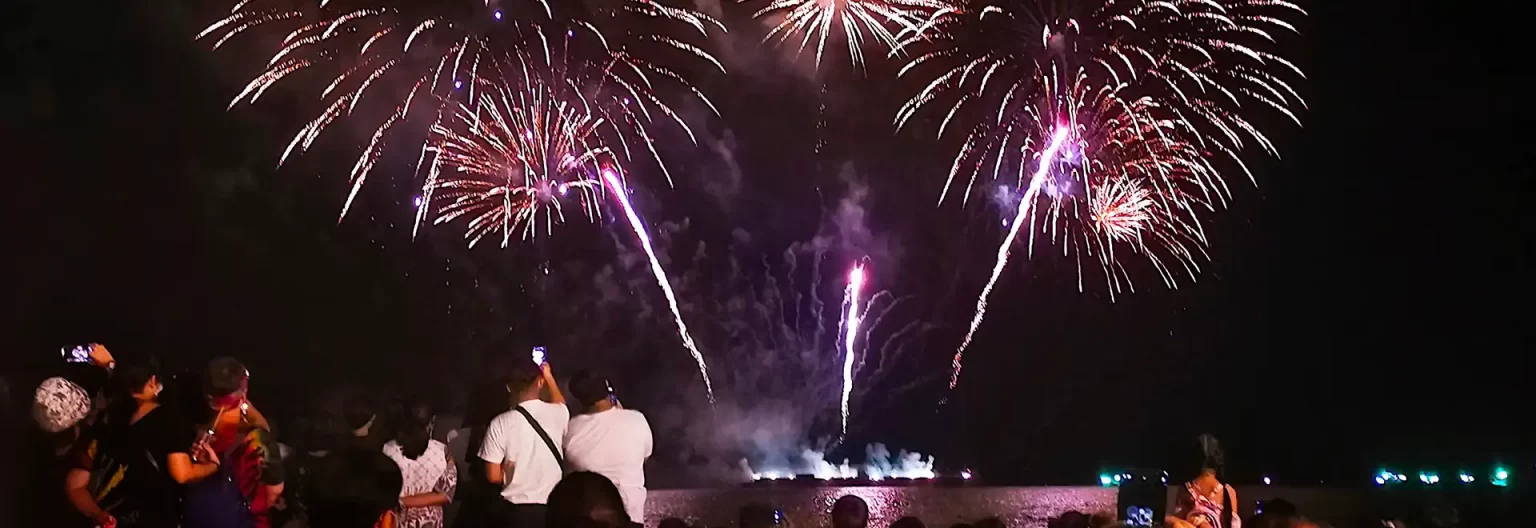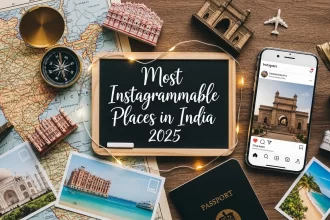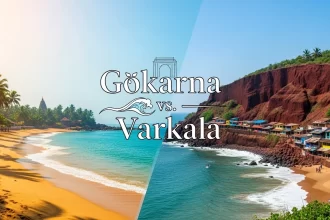Noted podcaster Ravi Handa has opened a pandora’s box of debate on social media after announcing reasons he had not preferred going to Goa for the New Year instead chose to travel to Vietnam. The remarks by Handa that attacked the behavior of some North Indian tourists have garner some support but have also evoked resistance from those who feel he generalized his observation.
Handa’s Complaints about North Indian Tourists in Goa and Other Countries
In a tweet, Handa expressed his frustration with how many North Indians have started to flock to Goa recently. According to him, the shenanigans of these North Indians have discredited the tour in the favourite state of beach holidays. “I went to Vietnam for New Year break, and Goa was an option,” he added. But for all the wrong reasons that any one of you is going to start ranting on Twitter about. Goa has too many North Indian tourists, and they ruin the experience.
He did not end there by merely criticizing Goa. He also remarked on his visit to Vietnam that North Indians are not that great as tourists. The more he generalized and criticized the tourists who went abroad increased the controversy over his words. As Handa quotes, these tourists are disturbing the very peaceful atmosphere which he wants on his holidaying schedule.
Cases of Vietnam: Tourism Disrupts Peaceful Scenery
Handa talked of his experiences in Vietnam, detailing several incidents he cited as typifying the disruptive nature of some North Indian tourists. For example, he recalled once when a bunch of tourists was loudly chanting “Bharat Mata ki Jai” in a train coach full of other Indians. That for Handa is an example of how certain tourists’ behavior might detract from the enjoyment of a trip.
Handa further recalls how in another case, a couple pushed the queue at a cable car station because they had a special pass. Handa challenged them and was replied by these individuals proudly that, “Hum logon ke pass special pass hai” (We have a special pass). Handa did not like the whole scenario, but clearly he was fumed up at such behavior of having special passes.
These experiences fuelled Handa’s perception of anti-social tourist behavior, first within India and later abroad, which only sealed his decision to take the New Year holiday to an alternative destination.
The Debate about Goa: From Changing Perception to Falling Popularity
In fact, Handa’s comments come in the wake of a Deepak Shenoy, founder of CapitalMind, expressing similar sentiments for skipping Goa to spend New Year in Thailand. Shenoy felt that lifeguards in Goa whistle too much when swimmers go too deep into the sea, spoiling the experience for his family.
This has led to an even bigger debate about the losing appeal of Goa as a prime destination for tourists. One of the most widely visited holiday spots in India, Goa has received criticism lately about high hotel tariffs, exorbitant airfares, and an alleged “taxi mafia” that supposedly spoils the experience for its visitors. Pictures of empty streets and deserted cafes during peak seasons have only gone to add more fuel to this fire.
Handa’s comments further added fuel to the fire by raising yet another reason why the image of Goa has been changed, which was the attitude of tourists from North India, at least. For some, Handa’s observations were proof yet again of the state’s problem of maintaining its status as a destination for domestic as well as international visitors.
Response of Goa Government: Justification of State Status as Leading Tourist Destination
While many online discussions were based on the bad experiences shared by Handa and Shenoy, the Goa government was quick to counter the narratives. Goa’s Chief Minister, Pramod Sawant, reacted in public on December 31, 2024, stating that Goa was still a thriving tourist destination. These months, from November till December and January, Goa is going to be chock-a-block with tourists. All the hotels are booked in this place and I guess all the tickets for flights going to Goa have already been sold,” he said.
Sawant stated that the concept of the tourism sector of Goa being on a decline or that there is a demand not being available during the peak tourist season was a complete misconception. Rohan Khaunte, the Tourism Minister of the state, also came to the rescue of Chief Minister Sawant as he targeted the influencers and social media personalities for spreading what he termed “misinformation”.
Khaunte shared the view that the status of Goa as the number one destination for tourists stood intact, with the claims made about the state’s tourism levels being misleading. He said the state needed to ensure that no “wrong message” was going out through the likes of Handa and Shenoy, who had aired their grievances about what they had to face in Goa.
Criticism of North Indian Tourists: Generalization or Valid Concern?
Some other debatable factors that have actually heated the debate over Handa’s comments includes generalization. Those who oppose the allegations given by Handa generalize their view to convey that any tourist from North India is very destructive. Such generalization further extended to criticize as they argued that they would know that there were a lot of people who gave terrible examples, and such a particular group should not be defined.
On the other hand, there are some who feel that his frustration is justifiable. In their opinion, it is these rising tourists who create nuisance which change the very character of a tourist place like Goa as a whole. To them, Handa’s criticism expresses a deeper concern about the changes mass tourism is bringing into the cultural dynamics and experiences in the most popular destinations.
It has stirred further introspection about the nature of tourism in India, or rather, the newer forms it is taking, along with the strain placed on visitor behavior management in popular destinations. The government of Goa prides itself on the success of tourism with Handa and Shenoy’s concerns for some tourists being more heterogeneous in nature, away from the traditional Indian destination and towards more laidback or culturally aligned sites.
Problems that Goa faces are overpricing and tourist attitude.
Other concerns Handa and others have expressed include the cost of traveling to Goa and aggressive behavior by some tourists, reflective of deeper issues Goa has. It has been a favorite tourist destination in India for decades, offering holidays without a care in the world. Soaring hotel costs, high airline fares, and complaints about taxi services have had some reevaluate their choices, especially when there are other Southeast Asian destinations they can choose from.
While Handa’s decision to opt for Vietnam instead of Goa is a reflection of her desire to have a peaceful, non-turbulent vacation, it says much about the larger economic and cultural changes that are happening in Goa. Only time will tell if Goa continues to be the top beach destination in India because other international destinations will continue to attract visitors at nearly similar prices for more relaxed holidays.
Conclusion: A Complex Issue with Multiple Perspectives
The New Year has opened up a multi-layered discussion on the changes in the Indian tourism landscape as well as behavior of some tourist groups with Ravi Handa’s observation that he and his family skipped Goa for Vietnam during this New Year. Meanwhile, his attack against North Indian tourist groups has led to mixed reaction but still brought under focus the issue at stake about popular destinations like Goa. The state government is still one which argues on its head. Yet, these are some questions from Handa and Shenoy to a change attitude toward travelling and expectations from a new tourist.
This will lead the way to other more sustainable and culturally sensitive tourism approaches besides a further subtlety in the conception of diversified tourist experiences through numerous destinations. With more travelers finding newer fulfilling experiences, it is this, finally, that shall decide the fates of Goa and those other places visited by so many.







